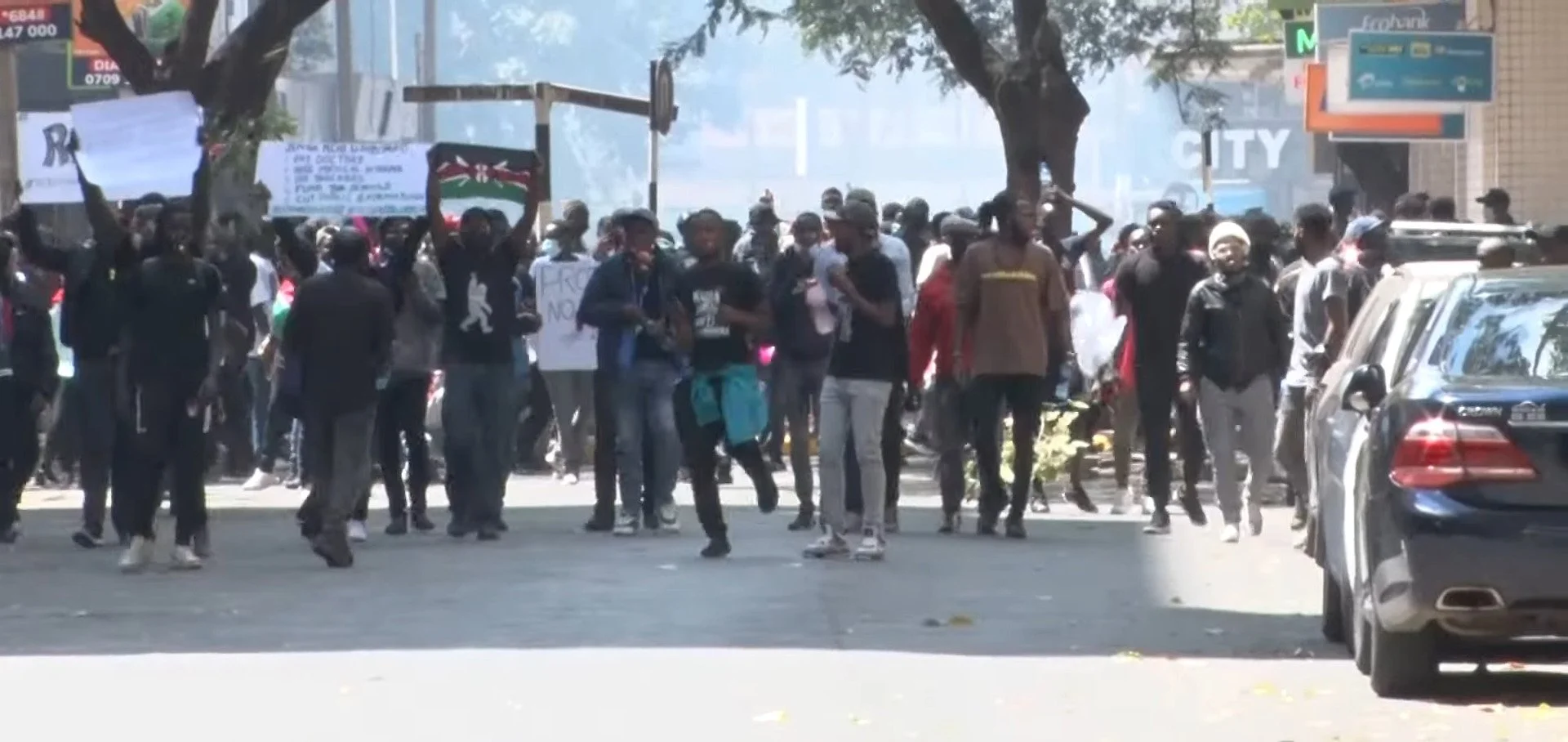Kenya’s Third Liberation: New Wave of Youth Protest Amid Government Crackdown
Alex Blackburn | 17 July 2025
Summary
Kenya's 7 July Saba Saba protests, led by Gen Z activists, reignited nationwide demands for good governance, police accountability, and an end to state violence, prompting a heavy-handed security response that shut down much of central Nairobi.
The protest movement, marked by digital mobilisation and youth disillusionment with traditional politics, has grown in strength following deadly clashes on 25 June, raising concerns about police brutality and threats against civil society.
In the short term, continued unrest is expected to strain public services, economic activity, and international relations, while in the long term, the Gen Z movement could reshape Kenya’s political landscape and influence regional democratic trends across East Africa.
On 7 July 2025, Kenya experienced a tense and heavily policed day as authorities sealed off all major roads leading into central Nairobi ahead of the planned Saba Saba protests. These demonstrations, commemorating the 35th anniversary of the original Saba Saba protests that led to multiparty democracy in the 1990s, have been renewed by a new generation of activists, primarily Gen Z, who demand better governance, justice for victims of police brutality, and increased accountability from the state. Much of the city centre was deserted, with businesses shuttered and schools advising students to stay home. Roads near government buildings such as the State House and Parliament were barricaded with razor wire, and commuters were stranded at checkpoints over 10 kilometres from the city centre.
The protest movement has gained momentum over the past year, culminating in a deadly incident on 25 June when at least 16 people were killed and hundreds wounded during anti-government demonstrations. These events have intensified public outrage, particularly among the youth, who are now leading what some are calling Kenya’s “Third Liberation.” Unlike previous protests, this recent wave is characterised by digital organisation, issue-based mobilisation, and a rejection of traditional tribal politics. Civil society organisations and human rights groups have raised concerns about police brutality and alleged state-sanctioned violence. Most recently, an armed gang attacked a press conference hosted by the Kenya Human Rights Commission in Nairobi, where women were calling for an end to state violence. The attackers, riding motorbikes and chanting anti-protest slogans, stole laptops and valuables from journalists and organisers - a chilling sign of the threats facing civic actors.
The implications of this uprising are extensive. The government’s heavy-handed response, including roadblocks, arrests, and surveillance, highlights its deep concern over the scale and persistence of the protests. Yet these tactics may only serve to escalate tensions and erode trust in public institutions. Gen Z activists, many politically engaged for the first time, represent a demographic shift that could fundamentally reshape Kenya’s political landscape. If met with dialogue and reform, the movement could act as a catalyst for genuine change. However, further repression or manipulation by non-state actors risks deepening the crisis and inciting renewed violence.
Capital FM Kenya/Wikimedia Commons, CC BY SA-3.0
Forecast
Short-term (Now - 3 months)
It is likely that, as Gen Z-led protests persist, particularly in urban areas like Nairobi, Kisumu, and Mombasa, the government will maintain a hardline security posture. Police may continue using force to disperse crowds, and further incidents of violence, including arrests, injuries, and fatalities, are probable. This will deepen mistrust between young Kenyans and state institutions, particularly the National Police Service.
It is likely that continued unrest will disrupt daily life, especially in Nairobi's central business district and key transit routes. Small and medium enterprises may suffer repeated closures, while the matatu (minibus) transport sector could see declining revenues due to police checkpoints and commuter delays. This disruption may heighten economic frustration, particularly among the urban poor and unemployed youth already disillusioned with the high cost of living.
It is highly likely that President William Ruto’s government will face growing scrutiny over its handling of the protests. Domestically, civil society and the religious community may call for independent investigations into police conduct and demand constitutional reforms to improve government accountability. Internationally, Kenya risks criticism from human rights watchdogs and Western allies, potentially affecting aid and security partnerships if repression intensifies.
Long-term (>1 year)
There is a realistic possibility that the Gen Z-led movement could evolve into a sustained political force influencing the 2027 general elections. If youth disillusionment with traditional parties persists, new political formations may emerge, or existing opposition figures could align with youth agendas, potentially leading to a reconfiguration of Kenya’s political landscape away from ethnic coalitions toward issue-based politics.
It is likely that the government will be compelled to implement reforms, such as establishing an independent police oversight mechanism or revising public order laws, particularly if protests remain non-violent and gain public sympathy. Alternatively, if repression continues unchecked, Kenya could see a rollback of civil liberties, including restrictions on protests, the media, and NGOs, which would undermine its reputation as one of East Africa’s more stable democracies.
There is a realistic possibility that, as a regional hub and democratic bellwether, Kenya’s domestic unrest could influence neighbouring countries such as Uganda, Tanzania, and Ethiopia, where similar youth frustrations are simmering. If Kenya navigates this crisis through reform and dialogue, it may bolster its image as a democratic leader in East Africa. Conversely, prolonged instability could weaken its diplomatic standing and regional economic leadership, including its role in the African Continental Free Trade Area (AfCFTA) and peacekeeping missions.



